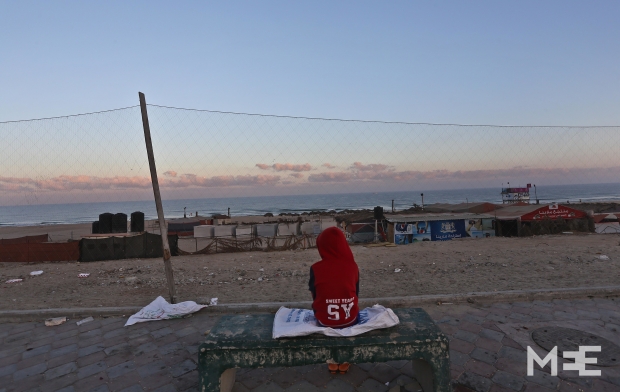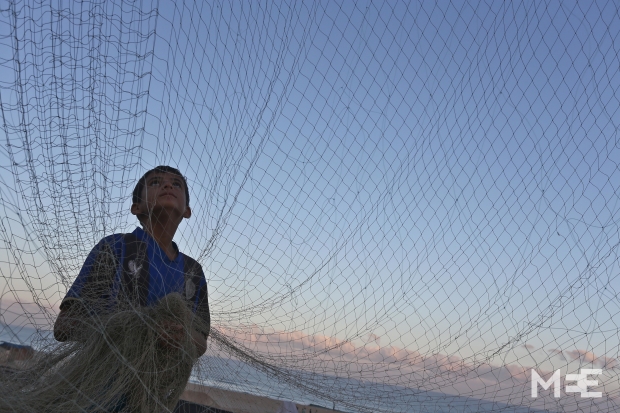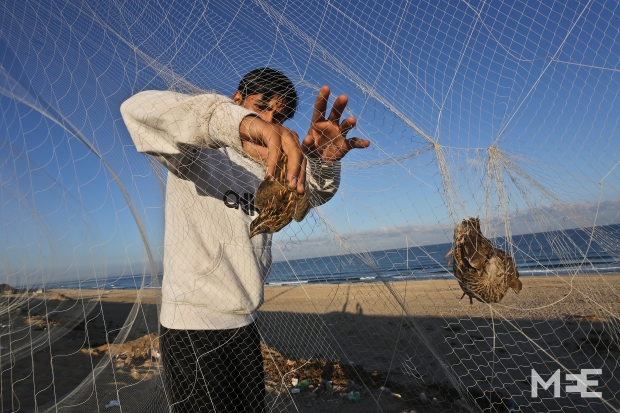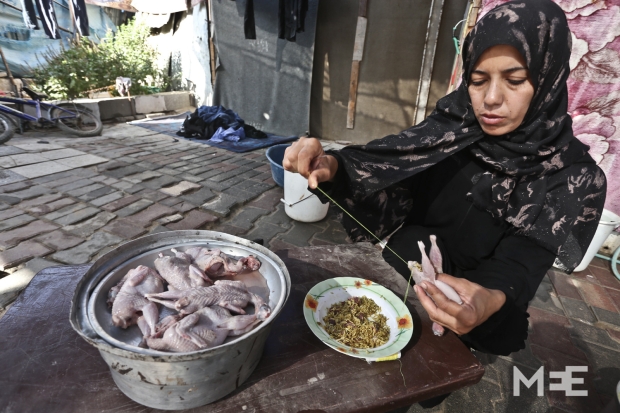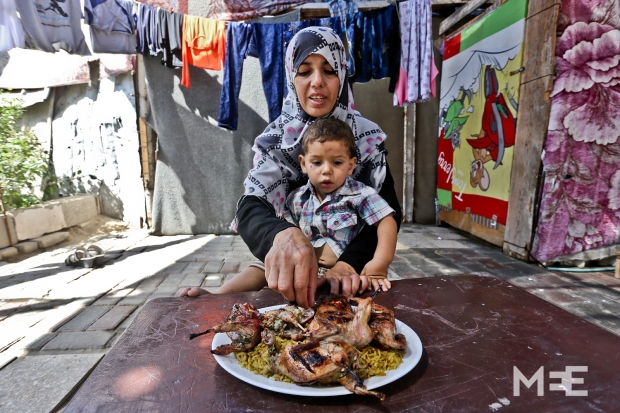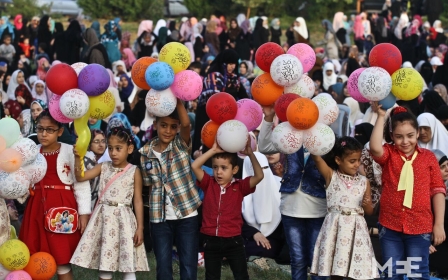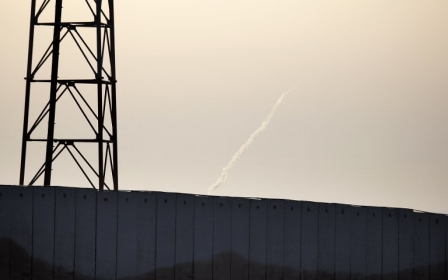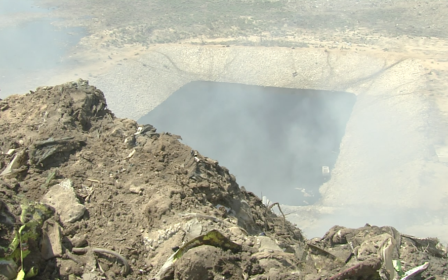Quail season brings rare treat for meat-starved Gazans
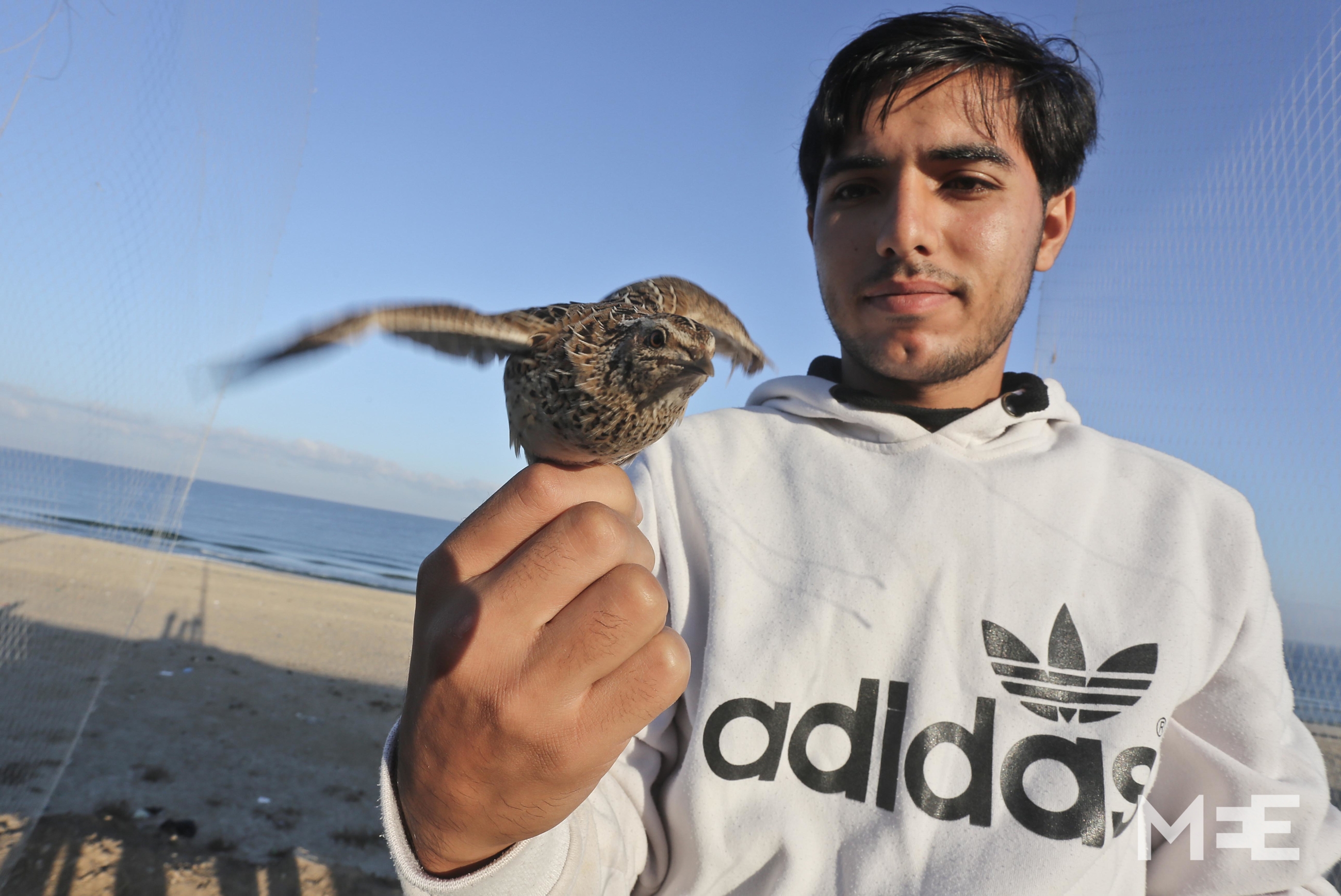
Before dawn, on the Mediterranean shore of Gaza, 19-year-old Maher Shamalakh shivers in the early morning chill. Since the beginning of September, he has been occupied with the daily task of feeding his family members.
It is the migration season of the common quail, and Maher has spread his 50-metre-long nets along the seashore, waiting for his migratory guests, which have flown from Europe, to alight on the Gaza shore, or continue further inland.
“I inherited this job from my grandfather, who did it for 40 years,” says the young man as he pushes the remainder of his net into a hand-made wooden stand.
The common quail is a tiny bird from the pheasant family - Phasianidae - common in Europe, similar to the Japanese quail, but with a very distinct call.
The sun is not yet up, but there is just enough light for Shamalakh to see. He sits quietly on an empty UNRWA-printed flour sack, wearing a white Adidas pullover watching the horizon for shadows of tiny birds. It's a matter of luck, he says.
“Sometimes they land on my shore nets, but other times they fly over and head toward high buildings or land further down the shore in my friend's nets” says Shamalakh.
Though a teenager, he is responsible for feeding five brothers and four sisters, and this is the only work he can rely on, for a few weeks each year. A gift provided by God and nature.
“Other people sell the birds in the market, but I choose to take them home for my family to eat,” he says, at a time when he has no money to buy nutritious food.
After the dawn prayers in the nearby mosque he returns to his nets. It is very silent in Gaza City. The traffic hasn’t started yet, and just the clicking of donkey hooves on the road and the murmuring of prayers from the nearby mosque can be heard.
It's a new dawn - students wake up for the school day, but Shamalakh has finished his schooling, knowing full well he can't afford the university education he wanted. His family urged him to continue his education despite their poverty, but at 19 years old he has heavy responsibilities toward his siblings.
Talking about common quail has become his favourite topic - even if they come only once a year.
“I love the soup made from the common quail,” he says, smiling in the dim light. He is confident that he will net a good catch of birds for the family kitchen.
A few moments of silence pass as the chilly sea breeze wafts over. He has a chill in his bones but feels it’s worth it if he takes quail home for delicious hot soup.
He speaks of the migration of the birds from far away. “I know it is destiny for some of the birds to land in my nets, then arrive on the dining table at home."
For the rest of the year- after the migration of the Quail - there are only a few vegetables to eat, grown by the family. In the markets of Gaza, traders try to sell vegetables, but consumers have no money to buy while the majority of Gaza’s 1.8 million people are out of work and the cost of production grows higher.
Shamalakh’s family are known for growing seasonal fruits including figs and cactus fruit, in addition to the well-known crispy Sheikh Ajleen grapes - a favourite among the Gazan population.
On the morning seashore, time passes as he chats with Abu Ehab, just next to him - a father of four who also relies on this migratory season to bring the taste of meat home to his children and wife.
The World Health Organisation has over the years expressed concern at rising malnutrition indicators - at the increased cases of stunted growth, wasting away and underweight children and high rates of anaemia among children and pregnant women.
The sun continues to break through the dark dawn - now is the time when tiny shadows flutter on the horizon, and while Shamalakh whispers, he is aware of movement ahead of him. Four pairs of common quail have landed in his nets. The birds are tired and choose to land on the beach covered by Shamalakh’s nets.
Shamalakh joyfully shouts: “Got them, got them!”
The birds find the Gaza shore a welcoming place, even if it is the coastal enclave of Israeli-blockaded Gaza, where 1.8 million humans are surrounded by fences, watched by drones and Israeli military personnel in an area that the UN expects to be uninhabitable by 2020, as the population grows within suffocating restraints.
“Oh come, sweets, welcome!” he says. Shamalakh is overjoyed as he feels the warm body of the small quail in his cold hands. His friend nearby helps him collect the birds from the nets. His smile glows like the morning sun, and he gently puts the birds into his white sack.
Common quail is a small round bird, streaked brown with white stripes around the eyes, and a white chin on the male. Its wings are relatively long - and some land in his standing nets and can’t go any further.
Despite the small size of the bird, it has become basic food here, for those who can’t afford year-round meat like beef, lamb and chicken. In the West, quail is a delicacy in expensive restaurants. Here, in Gaza, it’s a rare substitute for more common meats that are cost prohibitive for many. It just takes a few nets stretched out before the dawn during the migration season - September to October - and a patient young man with nine siblings to feed.
Out of nowhere a merchant appears to offer 15 NIS ($3.80) for each pair of common quail. Shamalakh can’t guarantee he will catch many and prefers to take the birds home. He moves away with the merchant, to stay clear of the nets, hoping more birds will grace his net.
The merchant says he has bought common quail for years to breed and sell in local bird markets. He sells each pair for $5 locally. After being caught, the quail pairs need six to eight weeks to breed, before laying between six and 12 eggs in a ground nest. The eggs take 16-18 days to hatch.
The merchant says he can make good money, but Shamalakh will have to disappoint the merchant as he plans to take the birds home.
“We must eat, ourselves, and there is no other source of food. Right now, this is all we have,” he says, as more quail land in his neighbour's nets, and Abu Ehab sings out “one, two, three, four, five birds in one go,” and he jumps up, smiling.
The merchant and Shamalakh look to the horizon as the sun rises higher above the sea line, revealing Israeli warships prowling around the six-nautical-mile border, looking for small fishing boats from Gaza to chase away.
The merchant smiles: “Well, these birds are my only connection to the outside world. They bravely came from far beyond Israeli warships and broke the siege on Gaza, instead of our nearby Arab brothers.”
Shamalakh smiles back, and says: “We will celebrate by eating them tonight and catch as many as possible for our brothers and sisters before they fly over and are gone again.”
Today he will make the family soup and enjoy its flavour, a legacy of his grandfather and the small migrating quail. It was a job that his grandfather did for fun when Gaza's borders were open and life was good, but now his grandchildren depend on it for survival.
Shamalakh says that Gaza is blessed to be between two continents - Africa and Asia - along the migration routes of birds and ancient humans - but he only realises the meaning of such freedom as he holds a tiny bird in his hand. Maybe he will never have the freedom to visit such places and return home, to Gaza.
New MEE newsletter: Jerusalem Dispatch
Sign up to get the latest insights and analysis on Israel-Palestine, alongside Turkey Unpacked and other MEE newsletters
Middle East Eye delivers independent and unrivalled coverage and analysis of the Middle East, North Africa and beyond. To learn more about republishing this content and the associated fees, please fill out this form. More about MEE can be found here.


